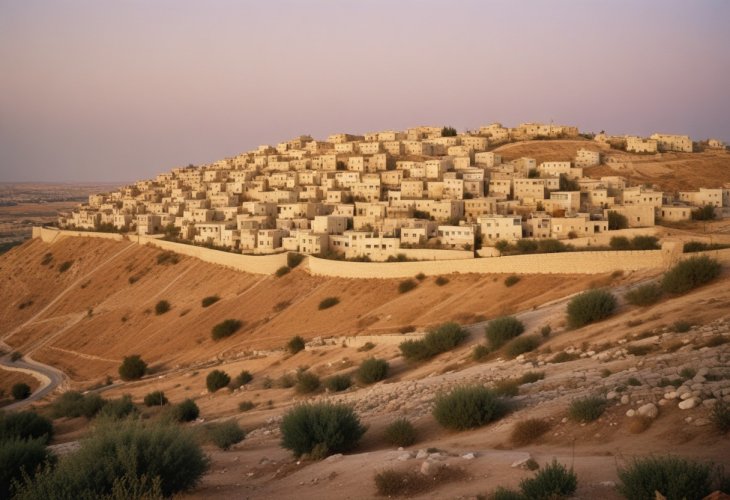Torah Personalities
The Forgotten Founders: How Moroccan Jews Helped Rebuild the Land of Israel
Long before Herzl or Ben-Gurion, Rabbi Aharon Moyal and his son Abraham laid the foundations for Jewish renewal in the Holy Land

A Vision from Rabat: Rabbi Aharon Moyal’s Bold Journey
In 1852, Rabbi Aharon Moyal, a successful Jewish merchant from Rabat, Morocco, made a life-altering decision. At the age of 40, he sold all his business holdings and set his heart on immigrating to the Land of Israel, a dream he had held onto for years. The news shook the Jewish community of Rabat.
Inspired by his determination, many other wealthy Jewish families joined him. In the end, a ship set sail from Morocco carrying 180 people, the elite of Rabat’s Jewish community, and headed for the Holy Land.
Rabbi Moyal and his companions established a vibrant Jewish community in the Arab city of Jaffa. Over the next two decades, the movement he helped spark brought nearly 30,000 Moroccan Jews to settle in the Land of Israel, long before the well-known figures of modern Zionism like David Ben-Gurion or Chaim Weizmann emerged. And yet, this remarkable chapter is often missing from history textbooks.
Spiritual leaders of this early Moroccan aliyah included Rabbi Yehuda Bibas, Rabbi Yehuda Alkalai, Rabbi Yehuda Halevi Margosa, and Rabbi David Ben Shimon, visionaries who played crucial roles in renewing Jewish settlement in the Land of Israel, though they remain largely unknown today.
A Community Beyond the Walls of Jaffa
Rabbi Aharon Moyal founded what was, by the standards of the time, a thriving Torah center. He built a large synagogue, a beit midrash (study hall), and a Talmud Torah to educate the children. For his own family, he constructed a mansion-like home just outside the walls of old Jaffa, well before the founders of “Ahuzat Bayit” (later Tel Aviv) ventured beyond the city’s ancient boundaries.
His son, Abraham Moyal, inherited both his father’s Torah greatness and his entrepreneurial spirit. In addition to being a mohel (ritual circumciser), which some believe is the origin of the family name “Moyal,” Abraham was also a gifted public figure. He became vice-consul for France in the Land of Israel and reached out to the Rothschild barons to support Jewish resettlement efforts. Eventually, he became the right-hand man of Baron Edmond de Rothschild, the “well-known benefactor” who funded and established Jewish agricultural colonies throughout the land.
Language, Land, and Legacy
In the Moyal home, only Hebrew was spoken, years before Eliezer Ben-Yehuda launched his campaign to revive the language. Later, Abraham Moyal collaborated with and supported Ben-Yehuda, though he had already been advancing many of the ideals later credited to Eastern European Zionist pioneers.
Abraham Moyal traveled throughout the land, purchasing land and building homes and barns in the pioneering settlements of Petach Tikvah, Gedera, Yesod HaMa’alah, and Mazkeret Batya. He also acquired land within predominantly Muslim cities for Moroccan Jewish immigrants, whom he believed were better equipped to navigate the local culture. Thanks to his efforts, Jewish neighborhoods were established in cities like Nablus (Shechem), Ramla, Lod, and even Gaza.
Tragically, Rabbi Abraham Moyal died at the young age of 35 from an infected wound. Yet in his short life, he helped reshape the physical and spiritual landscape of the Land of Israel.
The story of the Moyal family—of Rabbi Aharon’s courageous aliyah and Rabbi Abraham’s pioneering leadership—is a powerful reminder that the renewal of Jewish life in Israel began long before the political Zionist movement. These Moroccan visionaries left a lasting legacy that still shapes the land today.

